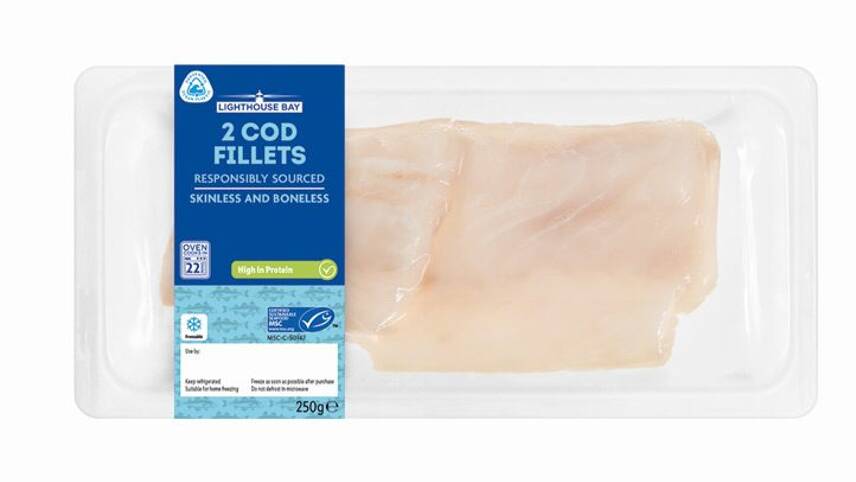Register for free and continue reading
Join our growing army of changemakers and get unlimited access to our premium content

Lidl GB has pledged that all own-brand plastics packaging will include a minimum of 50% recycled content by 2025
The new packaging formats, due to hit shelves on 30 March, will consist of a minimum of 30% “ocean-bound” plastics by weight. In order to be categorised as “ocean-bound”, plastics will need to be collected within 30 miles of oceans or major waterways in South East Asian regions where plastics waste production is outpacing recycling infrastructure improvements.
Lidl estimates that it will source 60 tonnes of “ocean-bound” plastic annually, once the full roll-out of the new packaging is complete. It will then assess the possibility of applying the new format to additional lines.
In order to ensure that the packaging itself does not, in turn, end up polluting nature, Lidl has redesigned the seafood trays to ensure they are collected at kerbside by most UK councils. The redesign is being communicated to consumers with a ‘Widely Recyclable’ on-pack label.
“The majority of ocean plastic enters the sea from ten main entry points, eight of which are in Asia,” Lidl GB’s head of CSR Georgina Hall said, citing the Ellen MacArthur Foundation’s landmark report on ocean plastics pollution.
“Countries like those in South East Asia lack the waste management infrastructure to manage this problem, which is often overwhelmed by population growth or tourism. We are proud to be the first UK supermarket introducing packaging incorporating plastic that would have otherwise ended up in the ocean, helping to tackle the problem directly as part of our commitment to prevent plastics ending up as waste.”
Aside from the 30% plastic from “ocean-bound” sources, the new trays will contain an additional 50-60% content from other recycled plastics feedstocks.
The moves come as Lidl GB is working towards its 2025 targets of ensuring that 100% of own-brand packaging is recyclable or reusable; and that all plastics packaging includes a minimum of 50% recycled content.
Ocean diversion
Since the Ellen MacArthur Foundation’s landmark report revealed that there is likely to be more plastics than fish in the sea, by weight, by 2050, several businesses have begun incorporating “ocean-bound” plastics into their packaging and supply chains.
Technology giant HP, for example, uses plastic bottles collected from Haiti as feedstocks to produce its ink cartridges. It uses 8.3 million of the bottles per year, sourcing them through an external partnership with Thread International and the First Mile Coalition.
HP is also a member of the NextWave Plastics initiative, set up by Dell Technologies and positive impact company Lonely Whale. The initiative brings together businesses that are committed to incorporating ocean-bound plastics in new packaging and product materials by developing a global supply chain for plastics that are seeping into the oceans. Other corporate members include Ikea, with businesses receiving assistance from other actors such as investors, NGOs and community groups.
In alignment with the Sustainable Development Goals (SDGs) – specifically SDG 14.1 – NextWave Plastic is aiming to divert a minimum of 25,000 tonnes of plastics, the equivalent to 1.2 billion single-use plastic water bottles, from entering the ocean by the end of 2025.
Despite these positive moves, WWF has warned that the amount of plastics produced, littered and incinerated globally is still set to rise “dramatically” by 2030 – amid a backdrop of weak policy, disjointed business action and slow improvements to infrastructure supporting recycling and reuse. The NGO is now focussing its plastics work on ensuring that businesses and policymakers set plastic pledges in line with planetary boundaries, and deliver against them.
Sarah George


Please login or Register to leave a comment.